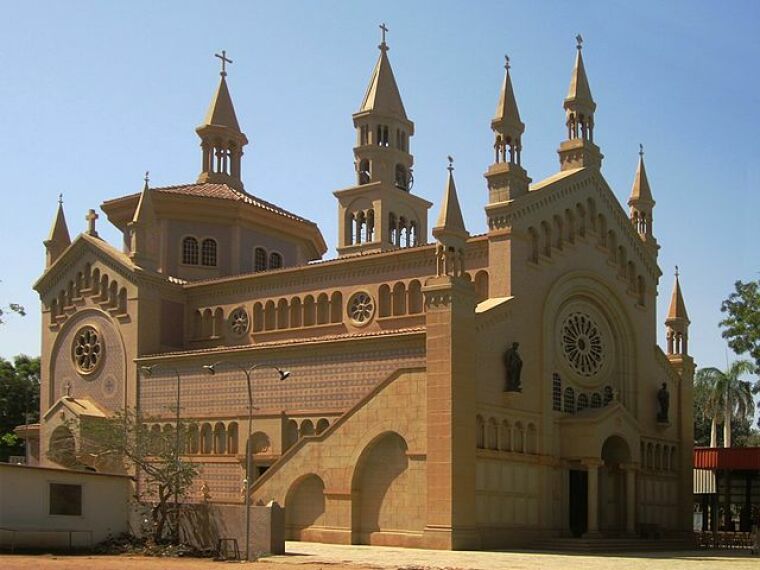Sudan orders Christian schools to conduct classes on Sundays

The Sudanese government has ordered Christian schools to conduct classes on Sundays in order to comply with the working week of the Muslim-majority.
The Ministry of General Education of Khartoum State has reportedly issued a directive ordering Christian schools in the region to observe the weekend on Friday and Saturday, and to regard Sunday as a work day. The directive was announced in a letter dated July 26, according to Morning Star News.
"In order not to affect the educational process and the ongoing plan, we ask you not to observe Sunday holiday," a letter from the ministry's Awadia El-Sheikh Saleh Omer read.
While Sunday is considered as a working day in Sudan, Christian schools have traditionally avoided conducting classes on their day of worship and rest.
Sunday is considered as the first day of the week in Islam, while Friday is regarded as a day of worship and rest in most Islamic countries. Saturday is added as the other day of rest in most places, according to Africa News.
Many Sudanese Christians saw the move as another means of harassment and discrimination against the minority group.
"The government's decision to abolish Sundays for Christian schools is discrimination against Christians in Sudan," said a Sudanese church leader who wished to remain anonymous for security reasons.
Sudanese Christians have called on the Vatican to intervene, while others are calling for national prayer and fasting.
The authorities have reportedly demolished the Catholic school of Angola a week before the start of the classes, displacing over 500 students who are now looking for alternative schools.
In March, the European Union Special Envoy for the Promotion of Freedom of Religion or Belief visited Sudan to inquire about the situation of Christians and the demolition of churches in the country.
As many as 27 churches have been scheduled for demolition in Khartoum, but it was delayed after lawyers appealed to the court.
In May, however, the authorities demolished the last remaining church building in the Soba al Arabi area outside Khartoum.
Ahmed El Tijani, the chairman of Sudan's Legislation and Justice Committee at the National Assembly, told the visiting Jan Figel in March that the churches were demolished for land-ownership reasons. Tijani maintained that freedom of belief is sanctioned by the Sudanese Constitution, and the state does not impose any religious belief or practice on its citizens.
In April 2013, the Sudanese Minister of Guidance and Endowments announced that no new licenses will be issued for the construction of new churches in Sudan, citing a decrease in the South Sudanese population due to the secession in July 2011.
Sudan has been designated as a Country of Particular Concern by the U.S. State Department since 1999 due to its treatment of Christians and due to human rights violations. It has been ranked fifth on Open Doors' 2017 World Watch List of countries where Christians face the most persecution.
 Christians don't have to affirm transgenderism, but they can’t express that view at work: tribunal
Christians don't have to affirm transgenderism, but they can’t express that view at work: tribunal Archaeology discovery: Medieval Christian prayer beads found on Holy Island
Archaeology discovery: Medieval Christian prayer beads found on Holy Island Presbyterian Church in America votes to leave National Association of Evangelicals
Presbyterian Church in America votes to leave National Association of Evangelicals Over 50 killed in 'vile and satanic' attack at Nigerian church on Pentecost Sunday
Over 50 killed in 'vile and satanic' attack at Nigerian church on Pentecost Sunday Ukrainian Orthodox Church severs ties with Moscow over Patriarch Kirill's support for Putin's war
Ukrainian Orthodox Church severs ties with Moscow over Patriarch Kirill's support for Putin's war Islamic State kills 20 Nigerian Christians as revenge for US airstrike
Islamic State kills 20 Nigerian Christians as revenge for US airstrike Man who served 33 years in prison for murder leads inmates to Christ
Man who served 33 years in prison for murder leads inmates to Christ


 Nigerian student beaten to death, body burned over ‘blasphemous’ WhatsApp message
Nigerian student beaten to death, body burned over ‘blasphemous’ WhatsApp message 'A new low': World reacts after Hong Kong arrests 90-year-old Cardinal Joseph Zen
'A new low': World reacts after Hong Kong arrests 90-year-old Cardinal Joseph Zen Iran sentences Christian man to 10 years in prison for hosting house church worship gathering
Iran sentences Christian man to 10 years in prison for hosting house church worship gathering French Guyana: Pastor shot dead, church set on fire after meeting delegation of Evangelicals
French Guyana: Pastor shot dead, church set on fire after meeting delegation of Evangelicals ‘Talking Jesus’ report finds only 6% of UK adults identify as practicing Christians
‘Talking Jesus’ report finds only 6% of UK adults identify as practicing Christians Mission Eurasia ministry center blown up in Ukraine, hundreds of Bibles destroyed: 'God will provide'
Mission Eurasia ministry center blown up in Ukraine, hundreds of Bibles destroyed: 'God will provide' Church holds service for first time after ISIS desecrated it 8 years ago
Church holds service for first time after ISIS desecrated it 8 years ago Burger King apologizes for 'offensive campaign' using Jesus' words at the Last Supper
Burger King apologizes for 'offensive campaign' using Jesus' words at the Last Supper Uganda: Muslims abduct teacher, burn him inside mosque for praying in Christ’s name
Uganda: Muslims abduct teacher, burn him inside mosque for praying in Christ’s name